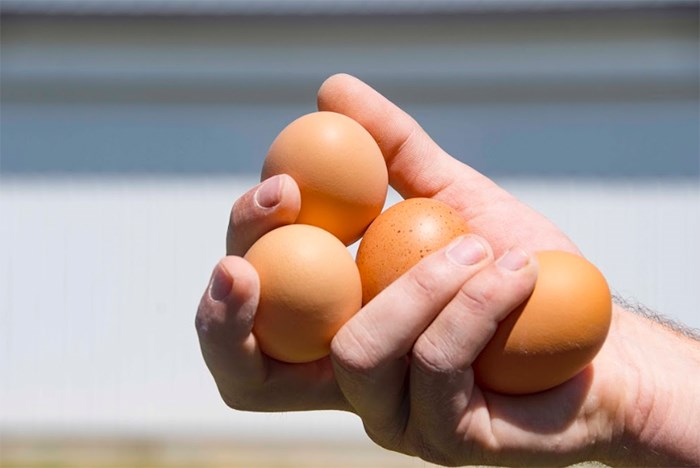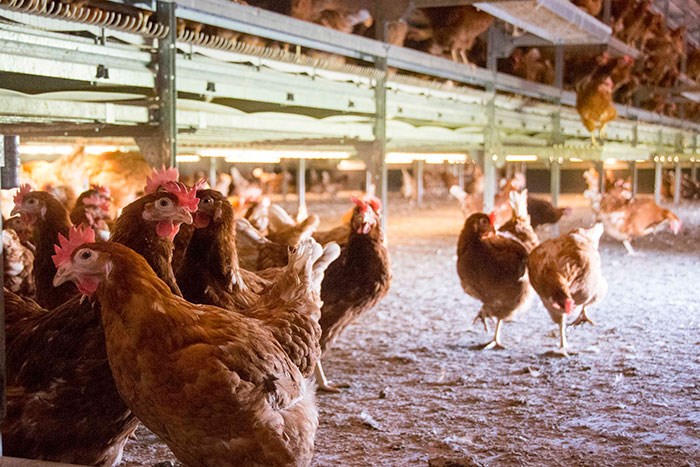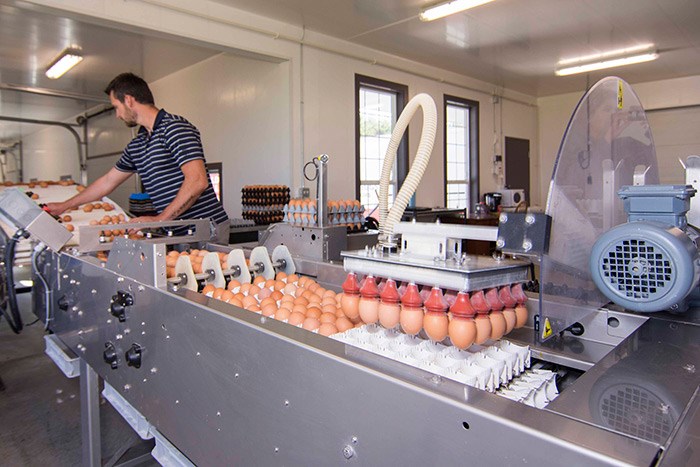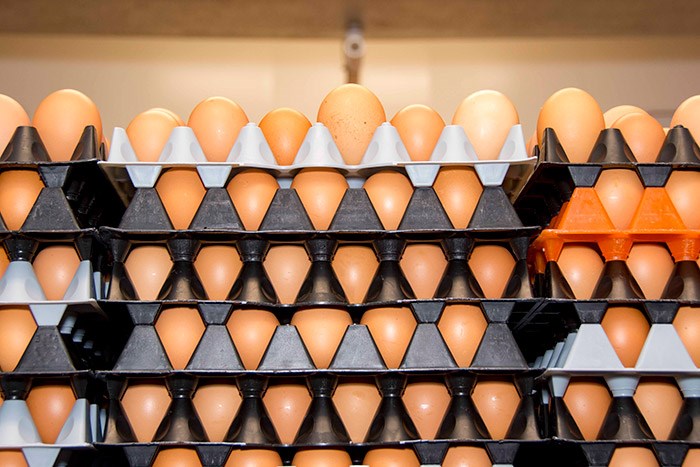 Photo: Chris Ralston / Shutterstock
Photo: Chris Ralston / Shutterstock
Eggs are one of the most prevalent foods in the world, particularly in Canada where you can pick-up a carton at pretty much any grocery store, corner store, or farmers market..
While those little morsels of deliciousness are certainly easy to come by, their journey to our plate isn’t so simple. You actually might be surprised at how many stages there are in the egg’s farm-to-table journey, so that’s what we’re here to uncover.
So what came first... the chicken or the egg?
IT ALL STARTS AT THE HATCHERY
 Photo: BC Egg
Photo: BC Egg
Well actually, the first step in the farm-to-table journey is the hatchery!
The hatchery is where fertilized eggs from breeding flocks are placed in special incubators until they reach maturity and hatch into baby chicks. Once the chicks have hatched, they’re moved into what’s a called a pullet barn, a special barn for young hens, where they stay for approximately 19 weeks until they’re grown enough to begin laying eggs. These hens are then transferred to the laying barn and begin laying eggs. It only takes a hen about 24 hours to produce a single egg, resulting in 300+ eggs per year per hen.
THEN THE HENS GET TO BUSINESS
 Photo: BC Egg
Photo: BC Egg
B.C. egg farmers participate in a national Animal Care Program. As part of this program, trained field inspectors visit the farm to ensure that hens have a comfortable environment, nutritious diet, fresh water and clean surroundings. Canadian eggs are produced according to some of the highest quality standards in the world, particularly in BC, where approximately 25% of egg farms are considered cage-free.
Hens are served combinations of wheat, corn, barley, rye and oats to provide the hens energy, protein, fibre, vitamins and minerals. Legumes (like soybeans and peas), and oilseeds (like canola and flax), are sometimes used as more concentrated sources of dietary protein and fat.
WE WASH, SORT, LABEL AND GRADE
 Photo: BC Egg
Photo: BC Egg
At this point in the eggtastic journey, BC eggs travel from the farm to grading stations registered with the Canadian Food Inspection Agency. At the grading stations, eggs are washed in a sanitizing solution and scrubbed with revolving brushes to remove dirt and any bacteria that may be found on the shell. There is no need to wash your eggs at home.
Egg quality is then examined using a process called “candling” where the egg passes over a bright light, revealing the condition of the shell, the size of the air cell and whether the yolk is well-centered. The eggs are then separated into grades based on predetermined criteria. Grade A quality eggs are packaged according to their weight and delivered to stores.
There are three main things that determine Grade A quality of an egg: the condition of the shell, the position of the yolk, and the size of the air cell inside the shell. If the shell has no cracks, the yolk is centered and the air cell is very small – it meets Canada Grade A standards. These are the eggs you buy at the store.
THE JOURNEY CONTINUES TO GROCERY STORES
 Photo: BC Egg
Photo: BC Egg
Eggs travel from the grading station to the store in a refrigerated truck. The eggs are kept under refrigeration at the store and are carefully rotated to ensure the eggs that arrive first are the first ones sold. Did you know egg cartons were invented in B.C.?Ěý
From classic white and brown eggs to free range and free run to organic, Omega-3 and vitamin D enhanced, you can find pretty much any egg variety in B.C.’s grocery stores.
THE FINAL DESTINATION
 Photo: Unsplash
Photo: Unsplash
Eggs are considered are one of nature's most nutritious foods. One large egg is only 70 calories and 5 grams of fat, contains 6 grams of high-quality protein, and provides 14 essential nutrients such as vitamins A, D and E, folate, iron, zinc, and choline. This means eggs are technically good for your bones, teeth, skin and eyes!
That’s the journey of a B.C. egg! All of which is made possible by local B.C. farmers and BC Egg, a non-profit organization that oversees and manages the province's egg farming industry.
To learn more about B.C. eggs, visit


